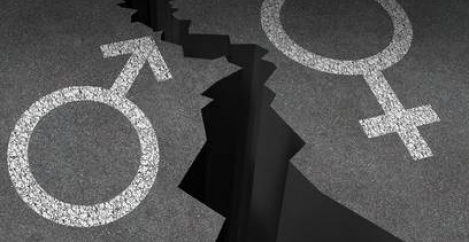November 11, 2016
Gender pay gap and inequality is fuelling division in the workplace 0
Following the United States’ vote against electing their first ever female President, a new port claims that gender inequality in the workplace is still rife and is causing divisions. Men are nearly twice as likely as women to feel comfortable asking for a pay rise (41 percent vs 25 percent) according to research by totaljobs. Taking a UK average across all roles, levels, industries and regions without consideration for job roles, qualifications and experience, women typically expect to get paid a salary of £25,468, compared to £32,030 for men – a difference of £6,562, that’s 20 percent less than men. Similarly, the data showed men get higher annual bonuses too, with 43 percent of men likely to receive a bonus compared to only 38 percent of women. The pay gap can also lead to tensions in the workplace as the research shows that nearly a quarter (23 percent) of women believe their male counterparts are paid more for carrying out the same role, while, 58 percent of men believe men and women receive equal pay, compared to just 44 percent of women.
The research also found that of those awarded a bonus in the last year, men received an average of £2,059 compared to £1,128 for women, a difference of £931.
The totaljobs study of more than 4,700 employees and 145 employers also claims that despite the fact that equal numbers of men and women received pay rises in their current roles (44 percent of men and 43 percent of women), men received an average pay rise of £1,764 compared to just £1,377 for women – a difference of £387.
Of those that received pay rises, 9 percent of men and 8 percent of women said they received their pay rise after asking for it, showing that women are just as likely as men to raise the issue of money with employers.
Three quarters (75 percent) of women admit they don’t feel comfortable asking for a pay rise, compared to 59 percent of men. The reasons cited by the women surveyed include:
- 37 percent of admit that they lack the confidence to ask for more money
- 30 percent said they don’t want to risk damaging their relationship with their manager
- 28 percent say it’s not part of the company culture
- 25 percent said they don’t like talking about money
The study claims female workers are generally less aware about workplace financial rewards and how to obtain them, with nearly a third (31 percent) of women saying that they are unaware of how their current company makes decisions around its salary and pay rises (compared to 26 percent of men).
John Salt, director, totaljobs said: “It is disheartening that our research has revealed that despite efforts gender pay equality remains a prominent issue. The application and interview process is a fantastic opportunity for both men and women to negotiate a fair benefits package, including a salary that meets their expectations. I would urge all female candidates to aim high and feel confident in demanding the same figure as their male counterparts.”
While some efforts have been made by industry, only two thirds (68 percent) of employers have a clear gender pay equality policy, and only one third (34 percent) review salaries across gender to safeguard against gender discrimination. One in five employers are unsure or unconfident that salaries are equal across genders. Similarly, 24 percent of men and 29 percent of women do not believe their company actively promotes equality for all employees regardless of age, gender or other reasons.
John Salt continues: “It’s not just the responsibility of employees – I would strongly encourage employers to actively monitor for salary differences between male and female employees to ensure gender equality across their organisation. By regularly reviewing salaries, bonuses and pay rises across genders they will safeguard against any unintentional discrimination.”
For more information – view the totaljobs 2016 Gender Pay Gap report here.














